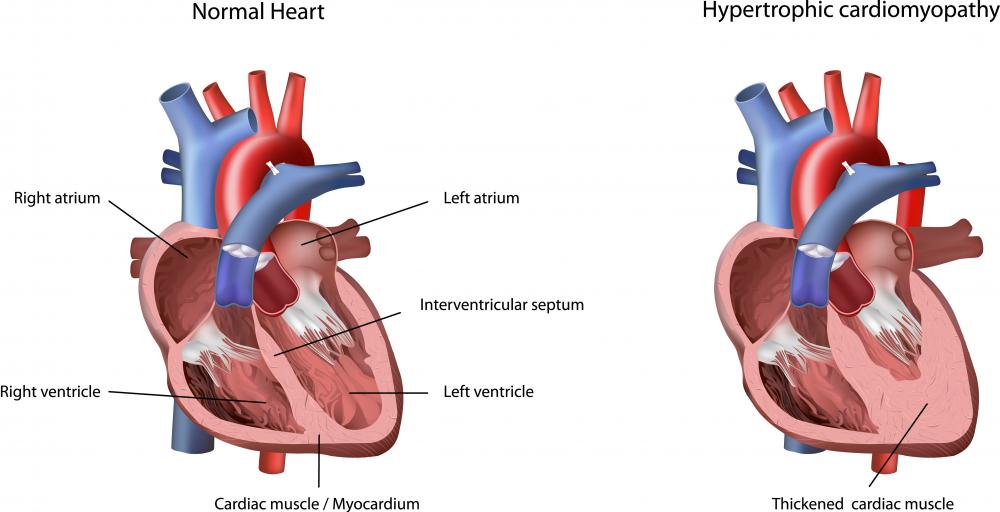At TheHealthBoard, we're committed to delivering accurate, trustworthy information. Our expert-authored content is rigorously fact-checked and sourced from credible authorities. Discover how we uphold the highest standards in providing you with reliable knowledge.
What Is Muscle Myosin?
A muscle is a collection of thousands of strands or fibers grouped together to form a cohesive unit, to make the body move. Each thread-like fiber contains myofibrils. Myofibrils are long strips of proteins bound together that travel throughout each one in sections called sacromeres. These proteins include muscle myosin and actin.
The sarcomere is the location where the muscle contracts. Muscle contractions — the shortening of muscle fibers — elicits movement when the proteins muscle myosin and actin slide against each other. Since these motor proteins rely on adenosine triphosphate (ATP), a bundling of molecules called nucleotides for energy, when a muscle is called into action a chemical change inside the sarcomere triggers the release of ATP that transfers into chemical energy.

Energy that has been stored in the muscles is released by a process called ATP hydrolysis. During this progression ATP is converted into adenosine diphosphate (ADP), the chemical that supplies the energy necessary for movement. This causes actin to slide past muscle myosin. Actin then to bind or attach to the myosin, a bonding referred to as a crossbridge, and produce actomyosin, a complex that creates muscle movement.

The crossbridges of muscle myosin and actin are constantly changing in relation to the type of muscle movement and its intensity. A stronger muscle contraction can break apart a former crossbridge and create another. However, if the movement of these proteins or the binding effect is disrupted muscle weakness and dysfunction can occur.
Muscle myosin affects all the muscles of the body. Therefore when a myosin mutation or random change occurs problems can translate into difficulties anywhere in the body. For example, when the myosin in the heart muscle malfunctions, the heart can enlarge suddenly without warning, causing death. This condition is referred to as familial hypertrophic cardiomyopathy, or FHC.

This protein also plays a role in in the proper functioning of the nervous system, particularly its sensory characteristics. This is the reason some myosin defects, such as mutations or random alterations found in some muscle myosin cells, can cause hearing disabilities, deafness and a range of neurological problems. Coupled with sensory flaws, motor imperfections associated with myosin defects and issues with balance may also occur. In severe cases where muscle myosin fails to work properly, convulsions in which the limbs or body experience uncontrolled contractions of the muscles may cause serious side effects to the body.
AS FEATURED ON:
AS FEATURED ON:















Discuss this Article
Post your comments